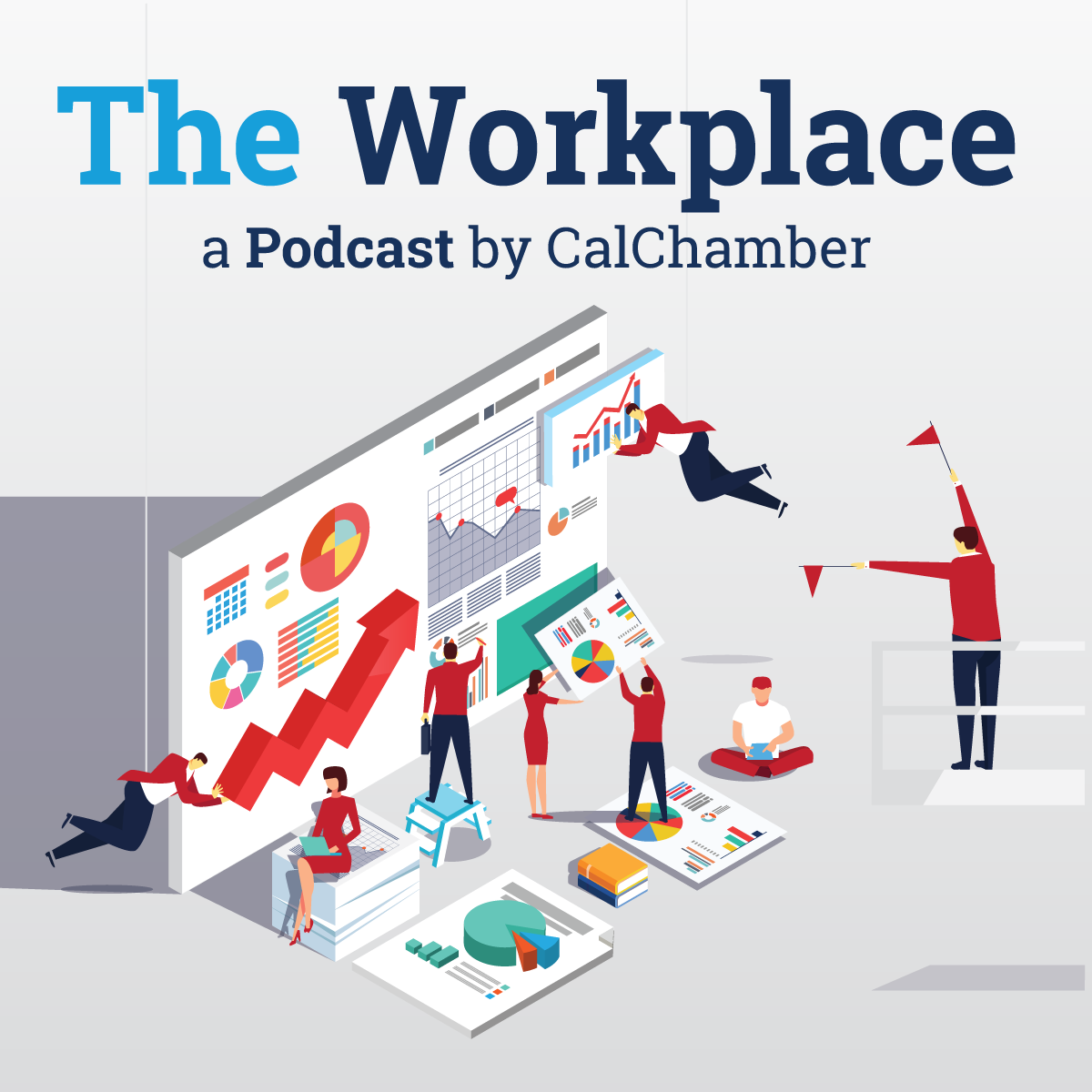
In Episode 191 of The Workplace podcast, CalChamber Associate General Counsel Matthew Roberts and business coach Nick Warner discuss the career advancement challenges remote workers face and give best practices for creating career opportunities in the current remote workplace environment.
Out of Sight, Out of Mind
A recent article in The Wall Street Journal highlighted new data that remote workers who worked from home five days a week were 35% more likely to be laid off than their peers who put in office time, Roberts says. The study found that 10% of fully remote workers were laid off in 2023, compared to 7% of those who worked in an office full-time or on a hybrid basis.
Warner, founder of Nick Warner Consulting, points out that oftentimes what is out of sight is out of mind. Simon Sinek writes in Leaders Eat Last that studies have shown it’s harder to hurt someone who is in front you.
A study asked participants to shock someone who was standing 30 feet away, and 5% of the participants were willing to press the button. When the person was hidden and never seen by the participants, the percentage of participants willing to press the button shot up to 90%.
This shows, Warner says, that “the further away you are from that power source, the easier it is…for that power source to hurt you.”
But, he adds, it’s rarely one factor that is the source of the issue. Remote workers could be missing out on mentoring opportunities that arise from being present at the office or may miss out on the debriefs and networking that happens in hallways when meetings conclude.
These opportunities can be impactful, he stresses.
An issue the Wall Street Journal article brings up is that some remote workers feel that their managers expect remote workers to complete assignments much faster than in-office employees, Roberts says.
“Managers seem to have some weird, distorted sense of how things get done on a fully remote basis — like they expect everything to be done in 10 minutes,” Roberts recounts from the article.
Is there a misconception, Roberts asks? What are managers missing?
Warner suggests that workers find ways to make sure people know what they’re doing. Some ways to do this are by communicating in different ways online or reaching out to teammates after calls or traveling to interact with office colleagues.
If someone is in a situation where they’re remote but their colleagues are together, they will need to take extra steps and have more awareness; otherwise it could be perilous for that person, he says.
Changing Job Market
The job market is weird right now, Roberts says. Some industries are laying people off, while other industries can’t find enough people.
Warner advises workers and business owners who are experiencing problems in the job market to reevaluate their mindset.
Workers who are set on finding remote work should think about why they want to be remote.
“Being in the office can be a privilege, not a punishment,” he says.
Being in the office can bring mentorship and collaboration opportunities that can advance one’s career, he points out. The debrief that happens after a meeting has ended, for example, is important and is a teambuilding opportunity that remote employees miss out on.
Business owners also should reevaluate their mindset if they’re having issues. For example, Warner says, if you want to have an old-school type of office environment where everyone is here every day, ask yourself, what’s the benefit? Does it need to be everybody?
Could a hybrid model work? If so, employers should assign specific core days and core times that workers should come into the office.
“If we’re going to do it, let’s do it in an organized way that makes sense,” he stresses.
Leadership Advice
In wrapping up the podcast, Roberts asks Warner what advice he has for workers who want to take on leadership roles.
Warner suggests that people ask themselves what their unique value proposition is. What do they do really well and where do they add value to their company? Someone may be very good at something, but they might hate it.
Equally important is to know what someone is not good at. If someone can’t get past what they’re not good at, they can’t evolve, Warner says.
“You have to get proficient because you’re going to be great at the things you’re great at, and our job is to supercharge that and add unique value, but also bring up these trailing issues,” he says.
While some people may actively pursue leadership positions, there are those who, for one reason or another, prefer to stay where they are.
One issue Warner sees in emerging leader training is employees who don’t want to move up into positions of leadership. Warner cautions that people in this situation are in a stage in their career where if they don’t move up, they are casting a shadow on the person behind them, taking away all the growth and air for that person. People with more experience should consider taking on a mentoring role for their organization.
“The value you provide to people around you is so high, not just monetarily and business wise, but also psychically and soulfully to actually help people underneath you,” he says. “You have that skill set, so let’s try to move you from the field into the executive,” he says.
To hear more from Warner, check out his podcast, Together At The Top, where he interviews successful professionals and business owners across all industries.

